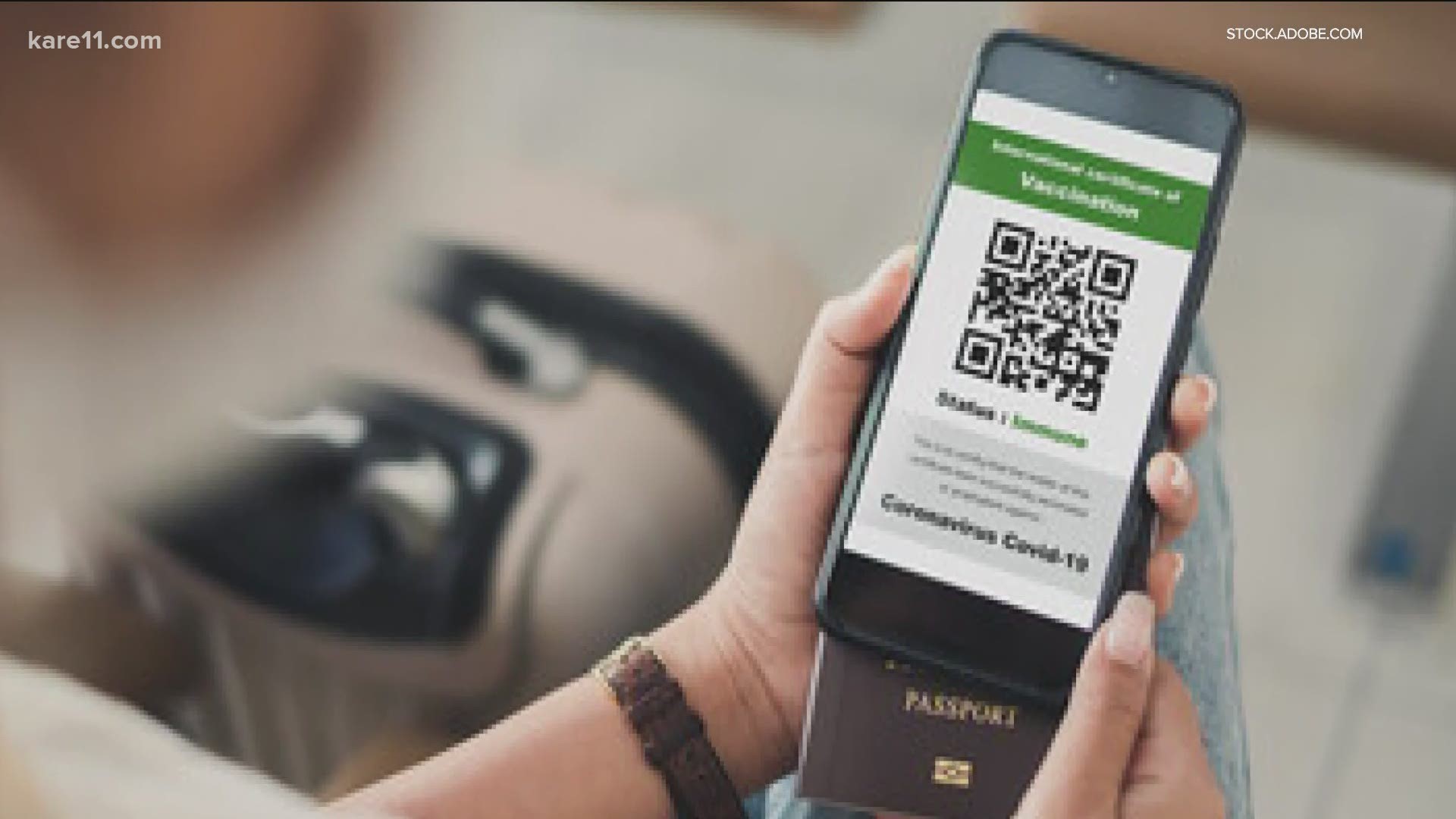ST PAUL, Minn. — Rodolfo Gutierrez is the Executive Director of the "Hispanic Advocacy and Community Empowerment through Research" organization – also known as H.A.C.E.R.
"H.A.C.E.R. is a small non-profit," he says. "It's been in Minnesota for the past 33 years."
Gutierrez works with the Minnesota Department of Health to connect people in the Hispanic and Latino communities with information regarding COVID-19 and vaccines.
But he says recently – many people eligible to receive the vaccine have reached out to him saying they were turned away for not having proper U.S. government issued identification.
"Yes, we've been finding that people who are coming to the sites, when they arrive, they are being asked for an I.D.," he says. "The problem is when they show a passport which is also a legal document, they are not accepting them as legal documentation."
A similar incident happened earlier this month at a Rite Aid in southern California. A 55-year-old woman was turned away when she couldn't provide a state issued I.D. or social security number due to her undocumented status.
"People are frustrated and they are leaving the sites and they are not taking the vaccine," he says.
While Hispanic and Latino populations are disproportionately affected by COVID 19, with lower vaccination rates, Gutierrez hopes more is done to lift barriers already in place for some of those most at risk.
"I'm communicating with MDH that we need to educate providers, for people who are receiving and looking for vaccines," he says. "Don't turn anybody away."
The Minnesota Department of Health issued this statement in response:
"This is not in line with what we have conveyed to providers. We want providers to be prioritizing people who are currently eligible, but they are not restricted to only vaccinating Minnesota residents.
We have heard reports of people being asked for state IDs and have followed up with a note to our pharmacy partners clarifying that IDs are not required, see the guidance below. Additionally, vaccine recipients will never be asked about immigration status.
If anyone experiences or witnesses discrimination or bias, they should speak with an investigator at the Minnesota Department of Human Rights (MDHR) by calling 1-833-454-0148 or submitting this online form. MDHR enforces the Minnesota Human Rights Act that prohibits discrimination based on protected class such as national origin, race, disability, and other protected classes. Immigration status is not a protected class.
If someone wasn’t able to get vaccinated, but they are currently eligible, they can search for other vaccine opportunities on the Vaccine Locator map: https://mn.gov/covid19/vaccine/find-vaccine/locations/index.jsp and we encourage people to sign up through the Vaccine Connector for other vaccination updates. We will continue to work with providers to make sure they know what information they should be asking patients coming for vaccination appointments."
Legal IDs or proof of citizenship are NOT required
- Providers should ask for a full name, date of birth, address, phone number, and gender so that the dose can be reported to the Minnesota Immunization Information Connection (MIIC) appropriately. Providers should never ask about immigration status when administering the COVID-19 vaccine.
- Usually, we recommend that people use the same name they typically use for health care when getting COVID-19 vaccine. However, in some cases, it may make sense to use a different name, such as the name used for employment.
- The benefit of using the name used for health care is that the COVID-19 vaccine record will then be included with all other vaccine records. But, if employers require proof of vaccination, it could be beneficial to use the name used for work. Either way, patients should remember or document on their vaccine card what name they have used, so they can retrieve their record later.
- It is optimal, but not necessary, to have an ID from the vaccine recipient to seek reimbursement from a third party or the HRSA COVID-19 Uninsured Program. Do not turn away patients that do not have state-issued identification.
If you are collecting information at the time a person makes an appointment online, please make it clear that they can get vaccinated without insurance or an ID. Give clear instructions on how to make an appointment without these items.

